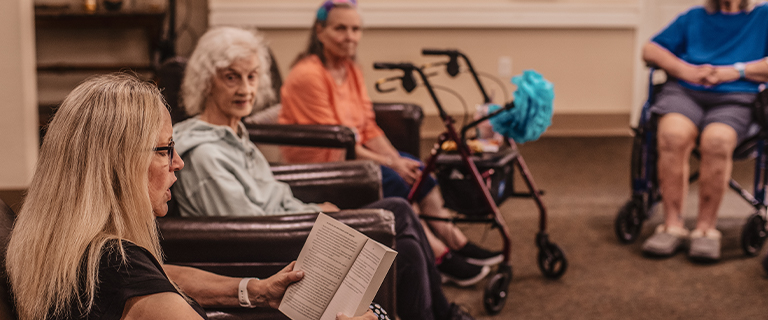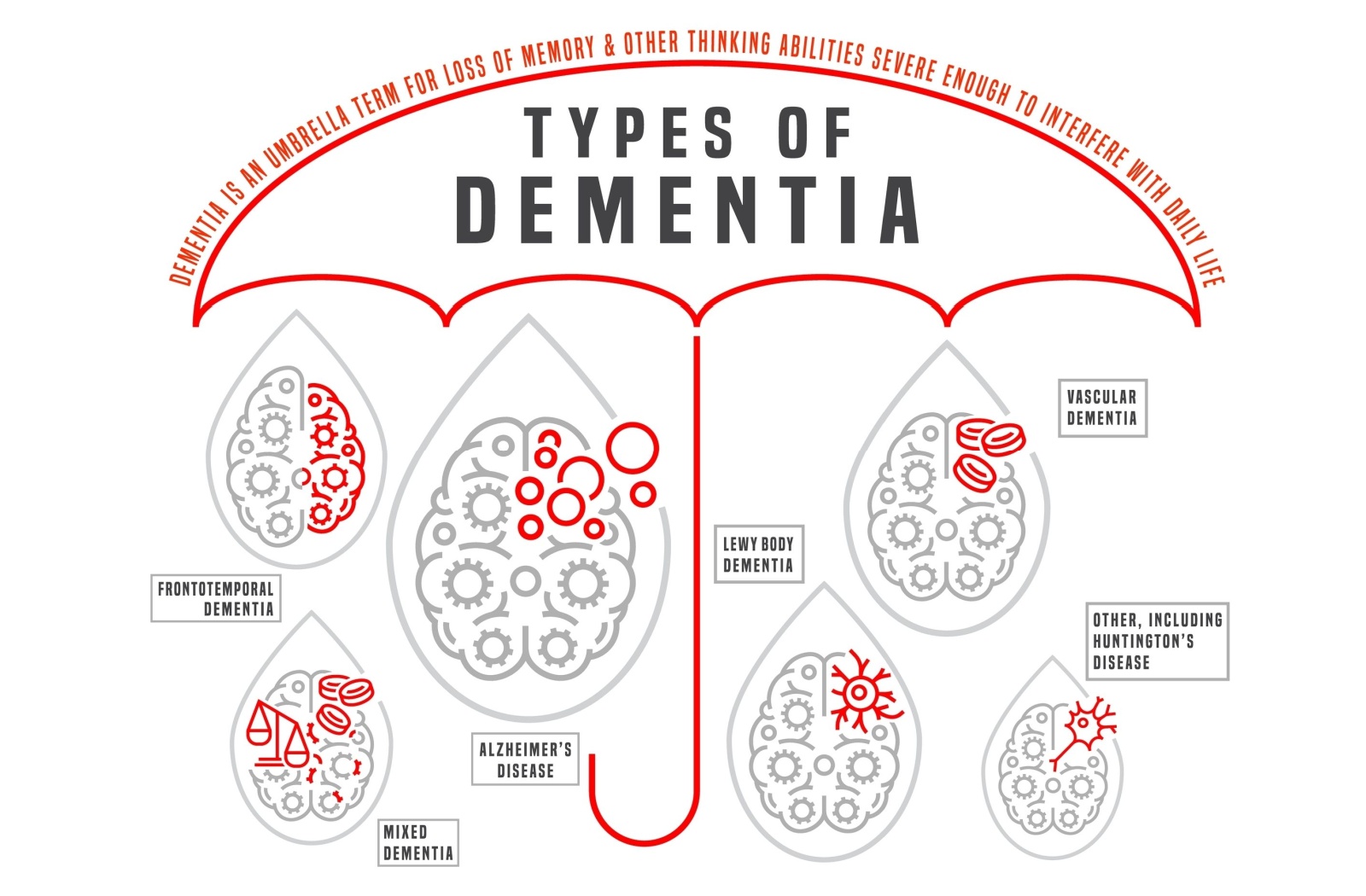Caring for a loved one with dementia can be challenging. At first, you may be able to support your loved one’s needs, but as the condition progresses, there may be a point where they need professional support.
The personalized, daily support available through memory care is the level of support that is often recommended for people experiencing dementia. However, because dementia can affect everyone differently, your loved one’s needs can vary.
In the earlier stages, a person with dementia may be able to remain independent. As the condition progresses, they may then need some help with daily activities. In later stages, they may need daily care to continue living well, and that can be when it’s important to know how to choose a memory care community.
What Is Dementia?
Dementia is a term used to describe several different neurodegenerative disorders. It’s a complicated group of different conditions closely associated with cognitive decline and memory impairment.
The most common type of dementia is Alzheimer’s disease, affecting as many as 5.8 million Americans, but this isn’t the only type—it’s estimated that there could be more than 100 different types of this condition.
Many of the different types of dementia are caused by changes to the brain that affect the way the brain functions. This condition is progressive, and as these changes continue to happen, the variety and severity of symptoms a person experiences can increase.
Dementia Symptoms
The common signs of dementia include:
- Memory loss
- Difficulty completing familiar tasks
- Confusion with time or place
- Trouble understanding visual images and spatial relationships
- Decreased or poor judgment
- Withdrawal from work or social activities
- Changes in mood and personality
These signs can be subtle at first, often varying from person to person. If you notice these changes increasing in frequency or seriousness, it’s essential to approach the situation with empathy and begin seeking professional care.
What Is Memory Care?
Memory care is a type of senior living designed specifically to support older adults living with cognitive decline, memory impairment, and other neurological disorders like dementia.
In memory care, your loved one can live in a residential community where they’re surrounded by a team of people who understand the challenges that can be caused by conditions like dementia. These caregivers can help give your loved one assistance with:
- Bathing
- Dressing
- Managing medication
- Therapy programs
This means that your loved one can get support with the tasks that may be difficult, all while receiving unconditional love and care from a community tailored to meet their unique needs. It can be an incredible way to help your loved one get the care they need to celebrate each and every day.

Early-Stage Dementia Care
In the earliest stages, dementia may not showcase many serious symptoms. This condition can often develop subtly, often being mistaken for simple age-related forgetfulness. At this point, your loved one may not require advanced care—though they may still benefit from the support memory care offers for maintaining cognitive health.
There are a few signs of memory impairment you can look for to determine whether your loved one may benefit from more support at this stage, such as:
- Repeating questions or stories
- Misplacing everyday items
- Struggling to follow conversations or find the right words
- Changes in mood or behavior without a clear reason
- Difficulty with decision-making or problem-solving for day-to-day tasks
If you start to notice these signs, it can be a good idea to gently approach the topic of seeking more support. This way, your loved one can move to a community designed to improve their quality of life.
Intermediate-Stage Dementia Care
In the intermediate stages, dementia can become a little more complicated. A person may begin experiencing more severe cognitive decline, leading to difficulty with daily tasks, such as:
- Remembering appointments and managing schedules
- Recognizing faces, including those of close family and friends
- Keeping track of medications and medical treatments
- Completing household chores and maintaining personal hygiene
At this point, your loved one may benefit from a more hands-on approach to care. They may need consistent support so they can stay safe and healthy. Seeking help from memory care could make a true difference to their quality of life.
Late-Stage Dementia Care
In the late stages of dementia, professional care can be crucial for helping your loved one live well. Some of the signs of late-stage dementia include:
- Severe memory loss
- Poor decision-making and judgment
- Difficulty communicating effectively
- Needing help with all daily activities
- Possible loss of mobility
- Significant mood swings and behavioral changes
- Increasing difficulty with eating and swallowing
At this point, memory care can be an incredible way for your loved one to maintain their quality of life. It can be an excellent way to provide them with consistent care, unconditional love, and the support they need to enjoy each day.
Memory Care in Dallas
When a loved one is diagnosed with dementia, it’s essential to think about professional care. Everyone deserves to be surrounded by a team of people who can nurture them every day with unconditional support and love.
At Parsons House Preston Hollow, we are here to celebrate your loved one’s life each and every day while nurturing their well-being. Book a tour with our community to learn more!



